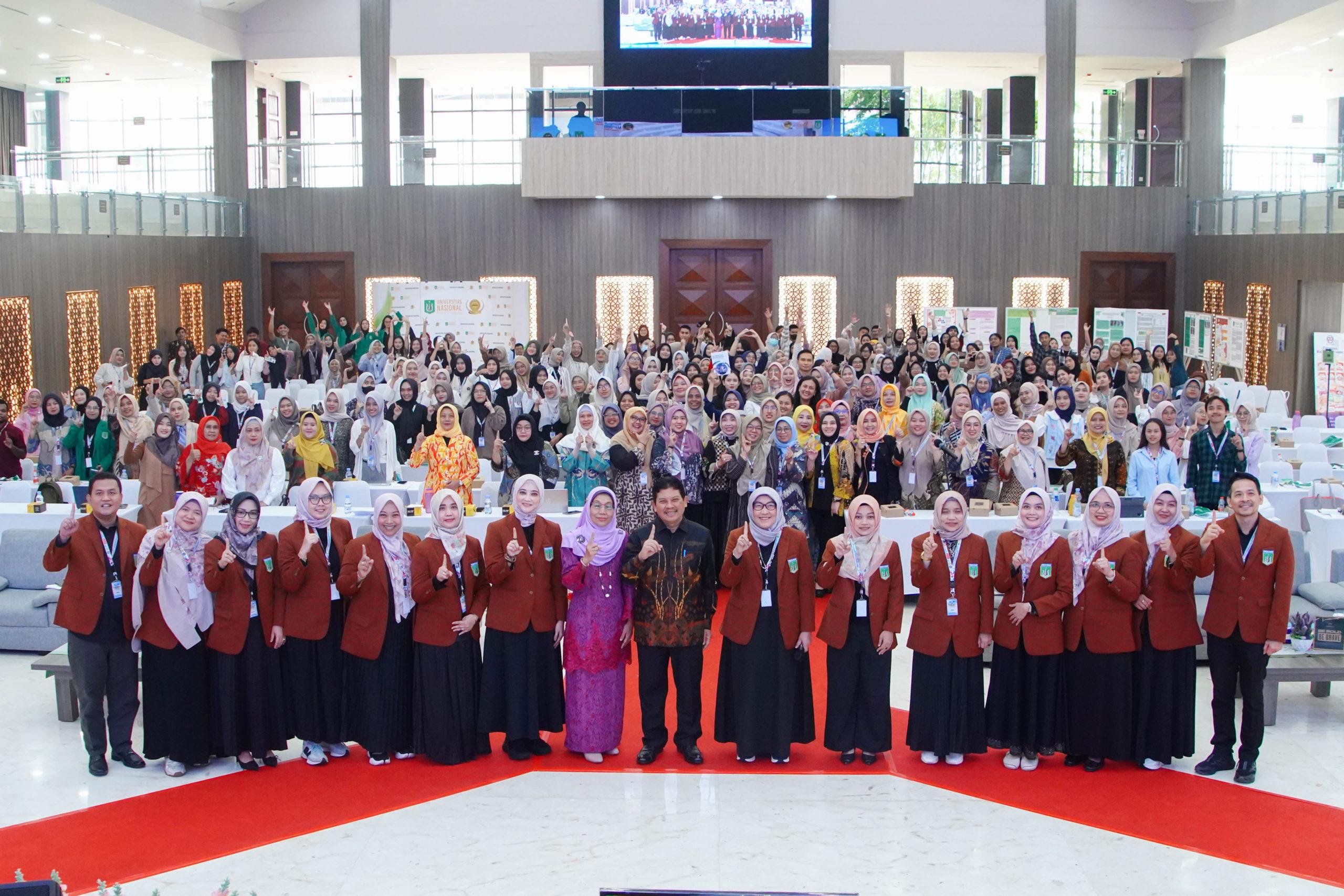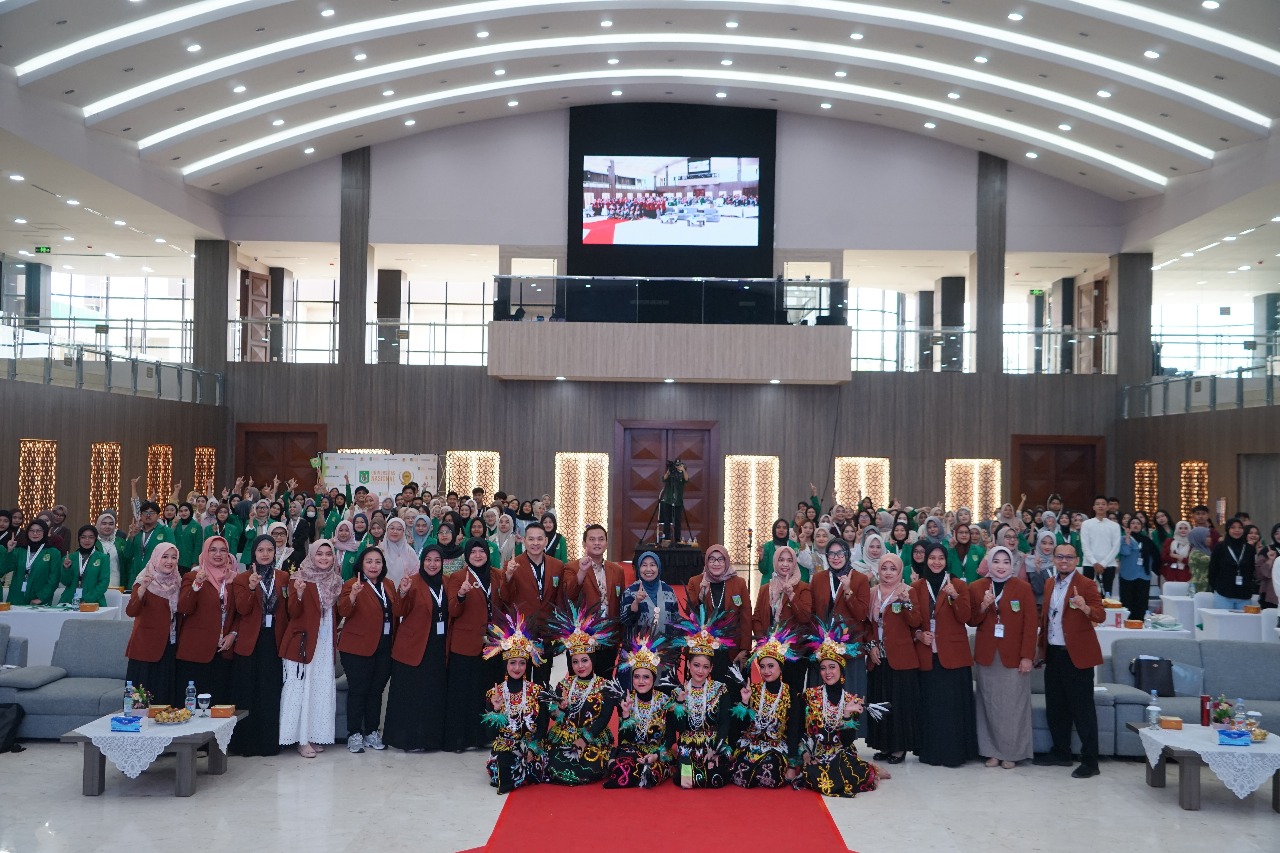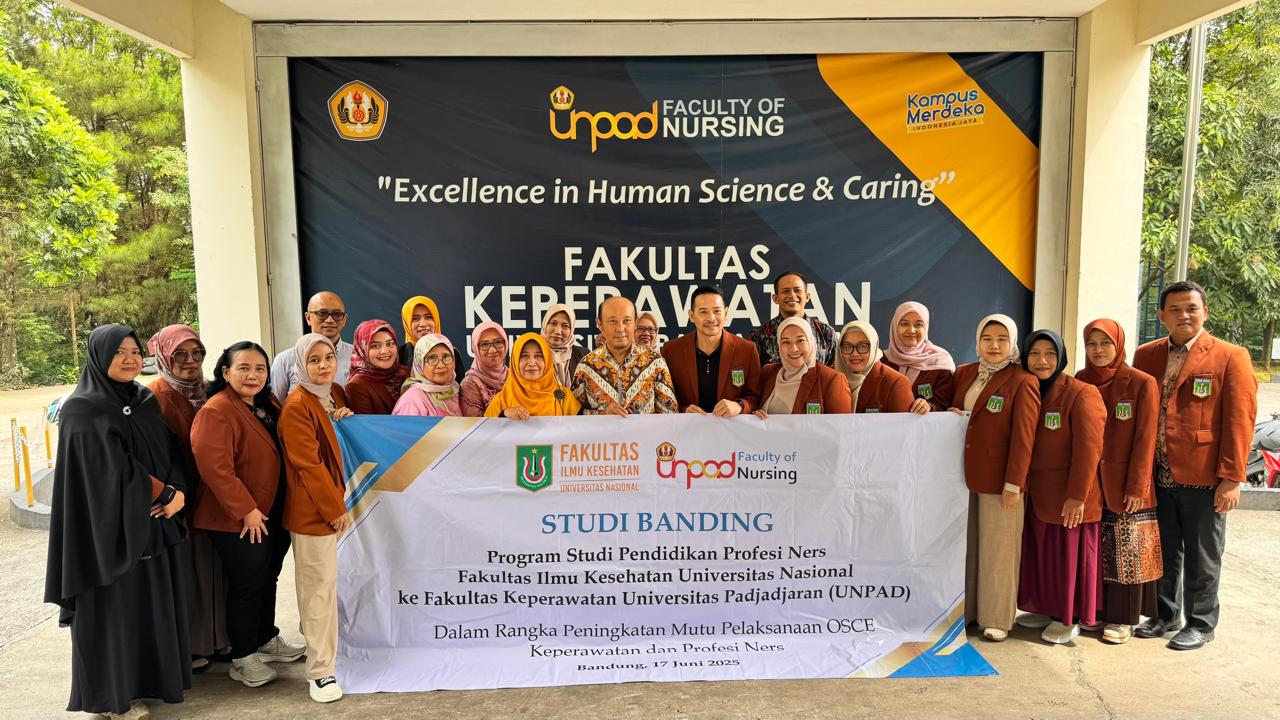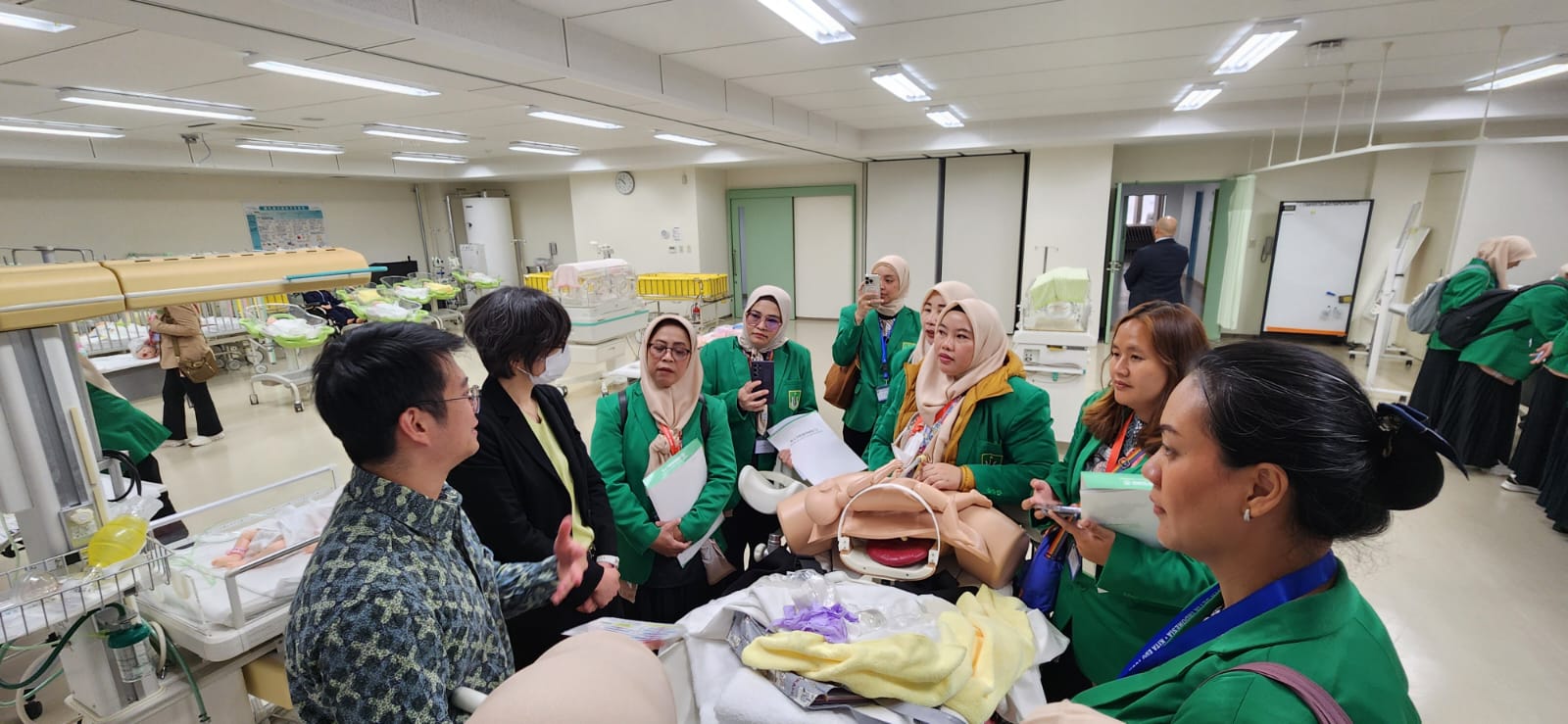Jakarta, November 2, 2024 – The Faculty of Health Sciences at Universitas Nasional (UNAS) hosted the highly anticipated 2nd International Conference on Health Sciences (ICHS), bringing together health experts, researchers, and practitioners from across Asia. The conference, marking a special milestone in UNAS’s 75th anniversary, focused on a critical topic in modern healthcare: Wound Care Management and Complementary Therapies in Holistic Health Across the Asia Region. Here’s a glimpse into this groundbreaking event that is shaping the future of health science.
The event opened with a formal report by Ns. Naziyah, S.Kep., M.Kep., the Chairperson of the event, at 8:25 AM, followed by welcoming remarks from Prof. Dr. Retno Widowati, M.Si, Dean of the Faculty of Health Sciences. Prof. Dr. Retno Widowati welcomed participants with an inspiring message that highlighted the importance of fostering innovative healthcare practices. She emphasized how the conference was not only a celebration of UNAS’s 75th anniversary but also an opportunity to drive forward-thinking solutions in wound care. The event’s cultural richness shone through with a lively Welcome Dance, reflecting the diverse traditions of the region and inviting all to engage in the spirit of collaboration.
The conference’s first keynote speaker, Prof. dr. Ali Ghufron Mukti, M.Sc., Ph.D., Director of BPJS Indonesia, took the stage at 8:55 AM. His speech focused on Jaminan Kesehatan Nasional (JKN), Indonesia’s national healthcare system. He shared a comprehensive overview of wound care utilization within JKN, explaining how the system is improving accessibility to wound care treatments for millions of Indonesians. He also discussed digital healthcare improvements through BPJS, highlighting the role of technology in enhancing healthcare delivery.
The next segment of the conference highlighted wound care remains a pressing issue in a region as diverse as Asia. The session was moderated by Dr. Ns. Dayan Hisni, MNS. First speaker is Prof. Dr. Farida Mohd Said, RN., M.Sc., from Lincoln University in Malaysia, expanded on this by discussing the synergy between modern medicine and complementary therapies. Her session, “Harnessing Modern and Complementary Wound Care Treatment: Current & Future Direction,” was a thought-provoking exploration of how blending the best of both worlds can lead to better patient outcomes. The next topic was presented by Vildan Cakar, M.Sc., RN., Ph.D. She is a renowned expert from Medipol University in Turkey, emphasized the significance of teamwork in wound care and nursing. Through his presentation, “Teamwork in Wound Care and Wound Care Nursing,” she demonstrated how multidisciplinary collaboration among healthcare professionals can improve patient recovery and care efficiency. Participants had the opportunity to engage directly with the speaker during the Q&A session, asking questions on how to implement these team-based approaches in their own practices.
A standout moment of the conference was Prof. Dr. Retno Widowati’s own presentation on the healing properties of honey. In her session, “The Efficacy of Honey as a Topical Agent for Wound Healing,” she explored how this natural substance can play a pivotal role in wound care. Supported by years of research, Prof. Widowati shared compelling evidence on honey’s antimicrobial and anti-inflammatory properties, which have been proven to accelerate wound healing. The session was particularly well-received, as many attendees were eager to learn more about how traditional, low-cost treatments like honey can complement modern wound care techniques. The session was moderated by Ns. Intan Asri Nurani, Sp. Kep. Kom., ensuring a dynamic discussion.
As healthcare continues to digitalize, MA. Elizabeth Coronel-BAUA, RN, RM, MSN, DNE, DNS from St. Paul University in the Philippines, presented a timely talk on “Caring & Professionalism of Nursing Services in the Era of Digitalization 5.0.” She discussed the challenges and opportunities for nurses in a rapidly evolving healthcare landscape, where technology is becoming increasingly integral to patient care. Her session resonated with attendees who are navigating the intersection of human compassion and digital innovation. Another exciting session came from Assoc. Prof. Dr. Sophen Chunuan, from Prince of Songkla University in Thailand. Her talk, “Complementary Therapies in Midwifery,” addressed how holistic health practices can support maternal and neonatal care. By integrating complementary therapies such as acupuncture, massage, and herbal remedies, midwives can enhance the health outcomes of both mothers and newborns.
A Platform for Researchers: Oral Presentations and Recognition
In the afternoon, the conference showcased innovative research through oral presentations, with 30 onsite and 22 online participants. Researchers from across Asia presented their findings on wound care techniques, holistic therapies, and the intersection of digital healthcare and traditional medicine. These presentations were a testament to the progress being made in healthcare across the region. At the conclusion of the conference, the Best Oral Presentation and Best Poster Presentation awards were announced, recognizing the most impactful contributions to the field.
A Legacy of Excellence: FIKES UNAS’s Vision for the Future
As the 2nd ICHS Conference came to a close, the energy and excitement were palpable. The conference not only highlighted the latest advancements in wound care and holistic health but also reinforced FIKES UNAS’s role as a leader in health sciences education and research. With its unwavering commitment to academic excellence, FIKES UNAS continues to foster international collaboration, providing a platform for global health professionals to unite and share knowledge.
As we look ahead to next year’s event, the legacy of the 2nd ICHS conference will undoubtedly inspire future innovations in healthcare, encouraging more research, more collaboration, and, ultimately, better care for all. (DA)




